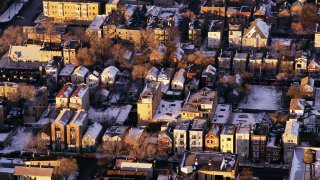


Thousands of Cook County homeowners will be getting a check automatically within the next few months, according to Cook County Treasurer Maria Pappas.
The money will be a refund for those who overpaid their first installment property taxes last year.
The refunds will go to more than 53,000 property owners in the Chicago-area county, totaling more than $47 million.
"If you have a refund coming, we’ll find you and return your money," Pappas said in a statement. "By putting refunds on automatic pilot, we’re eliminating a lot of unnecessary paperwork and applications."
Here's what residents need to know:
The refund checks are expected to start distribution this week, and will continue over the next several months.


For more than half of those eligible for a refund, the funds will be deposited directly into their accounts over the next three months.
Feeling out of the loop? We'll catch you up on the Chicago news you need to know. Sign up for the weekly Chicago Catch-Up newsletter.
Here’s a breakdown from the treasurer's office:
Residents can check if they're eligible for an automatic refund by visiting cookcountytreasurer.com. Select the purple box labeled "Your Property Tax Overview" and enter your address or 14-digit Property Index Number (PIN).
The treasurer's office noted that most of the refunds are going to homeowners receiving property tax exemptions, which are applied to the Second Installment tax bill and reduce the total taxes due. The possible exemptions could include: homeowner, senior citizen, senior freeze and disabled persons.